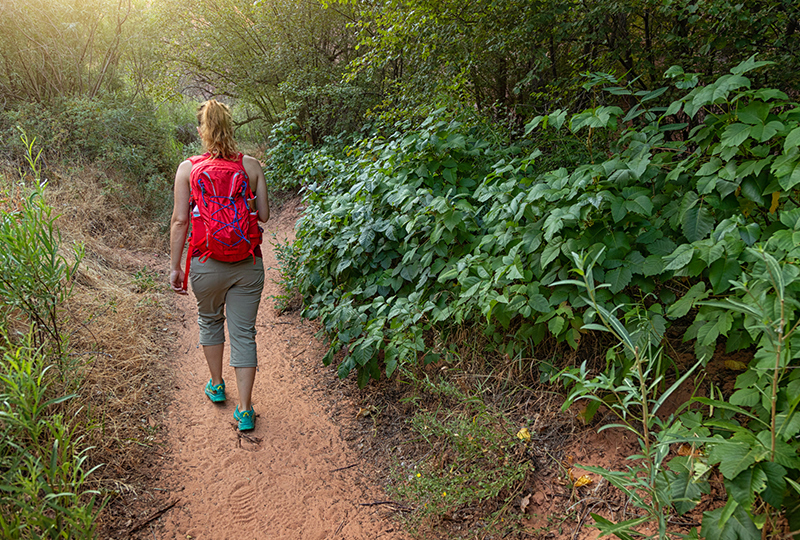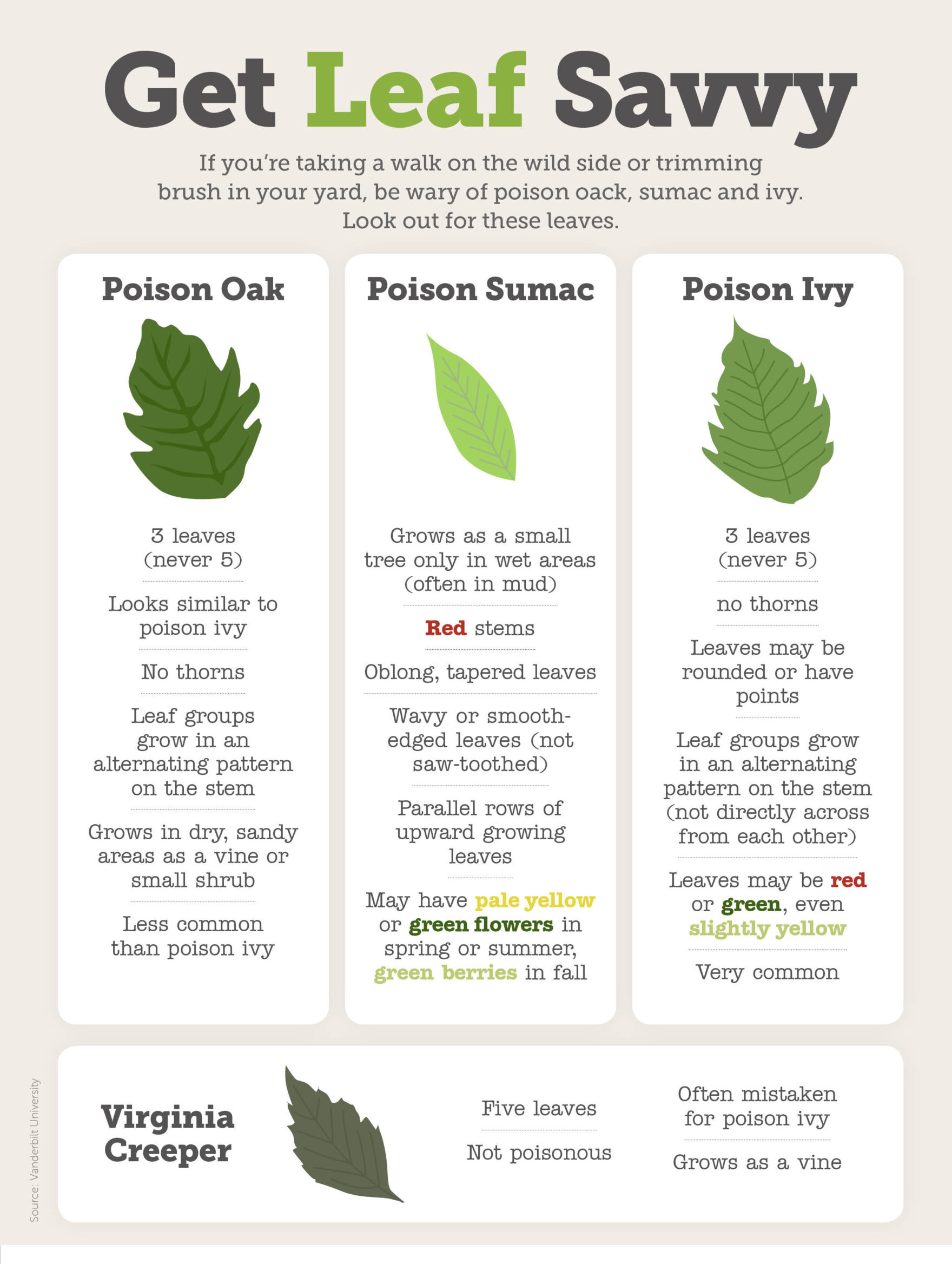If you are exposed to these poisonous plants, we’ve got some tips for treating the itch.
Plenty of outdoor adventures await us year-round in the Mid-South, but if you don’t pay attention to the foliage, you could end up with a nasty rash. Here’s what you need to know if you do meet up with poison ivy, oak or sumac.
Exposure
“When the oils of the plant touch the skin, it causes a delayed allergic reaction and the rash,” said Dr. Clay Smith, co-director of Vanderbilt Health’s Walk-in Clinics. “The contact dermatitis is the same for all three of these plants.”
Exposure can occur from touching a plant or a contaminated object like tools, a fence post, gloves, pet fur or another person’s skin. If oils have been promptly washed from a person’s skin with soap, they are less likely to get a rash.
Never burn these plants. Smoke inhalation from them can cause a reaction to people nearby and downwind, according to MedlinePlus.
If you think you have touched poison ivy, oak or sumac, wash your skin immediately with soap and water. Scrub under fingernails with a brush. Launder clothing and shoes in hot water.
The rash
“The rash usually first appears as small red bumps and often turns into itchy blisters on any skin exposed to the oils of the plant,” Smith said. “Each person’s immune reaction is different, and the onset and intensity of the rash varies based on how much oil gets on the skin. With limited exposure, it may be just a few red streaks for a couple weeks. But with more skin exposure and heavier contact with the plant’s oil, the rash may be widespread and intensely itchy.”
Once the oil has been washed off, scratching does not spread the rash, but it may lead to infection from dirt or germs under the fingernails.
Treatment
If the reaction is mild, over-the-counter medications like topical steroid creams and Benadryl tablets will do the trick. Avoid topical Benadryl, which may make it worse, Smith said. Also avoid bleach, which can cause skin burns, and avoid hot showers and baking soda, both of which may increase the itch.
If the reaction is severe, a prescription steroid might be beneficial. “Your provider will consider your medical history, such as diabetes or conditions that weaken the immune system, before prescribing topical or oral steroids,” Smith said. “It is important to let your health care provider know if the rash is worsening or if it comes back after stopping the medication.”

The care right now that’s right for you
If you or your loved one is feeling sick or has a minor injury, Vanderbilt Health is here to help you get better fast. Vanderbilt offers dozens of locations with convenient hours throughout Middle Tennessee—and can even bring a provider to you.
Vanderbilt’s Children’s After-Hours Clinics offer the convenience of a walk-in clinic with care provided by a board-certified pediatrician from Children’s Hospital. No appointment is necessary, but we recommend calling your pediatrician first. Learn more about services and find locations for Children’s Hospital After-Hours Clinic here.


